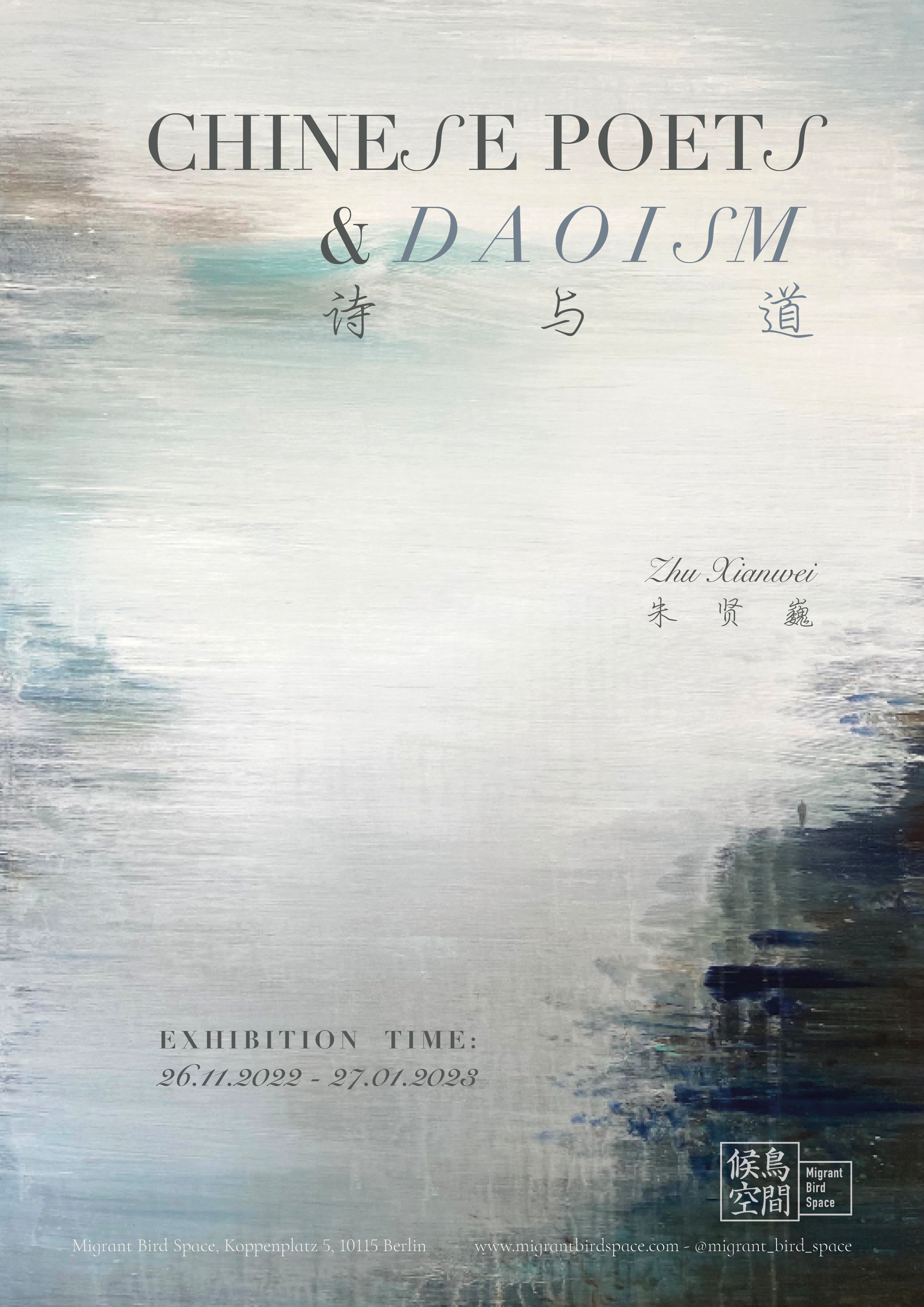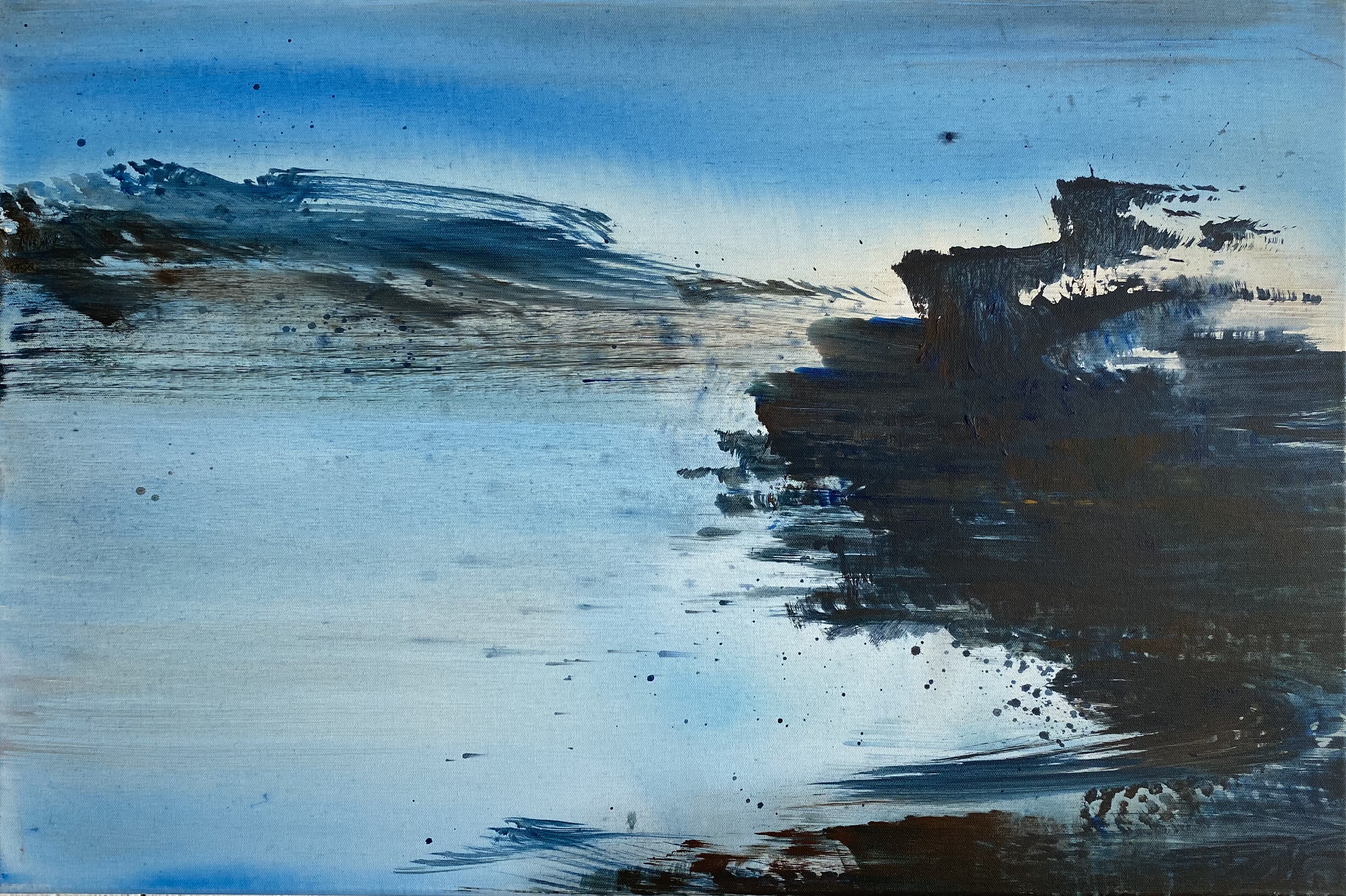
Zhu Xianwei is considered one of the most interesting landscape painters in recent years. With his spontaneous strokes, he combines the ideal of the soul landscape in the sense of the German Romanticism, with the philosophical insights of Zen philosophy: Mountain and river become one, in order to join again in the inner image of the viewer to the overall view. Finding inspiration from the Danube in Europe or the Chinese mountains, the Chinese-German painter evokes classical times to explore and secure his two binding cultural spaces. It is about home in a globalized reality.

Zhu Xianwei initially evaded the feeling of the universally unhoused in a figurative way. With the passing of time, the figures portrayed became smaller and smaller, while the surroundings more grandiose.
His paintings evolve; the main goal, however, is to free oneself from classifications, to let the mountain become a river and ultimately wisdom. The painter reminds us of the “wang ji”, the forgetting, thanks to which one reaches where one wants to go in the first place: whoever strives for something makes himself unfree, tenses up and possibly ends up on a wrong track. Only when one no longer thinks about it, one will reach the goal.
His tendency to restrained color variation, sometimes to monochromaticity, inspires the emptiness of the representation, but also promotes the invisible depth of space and resounding silence.
